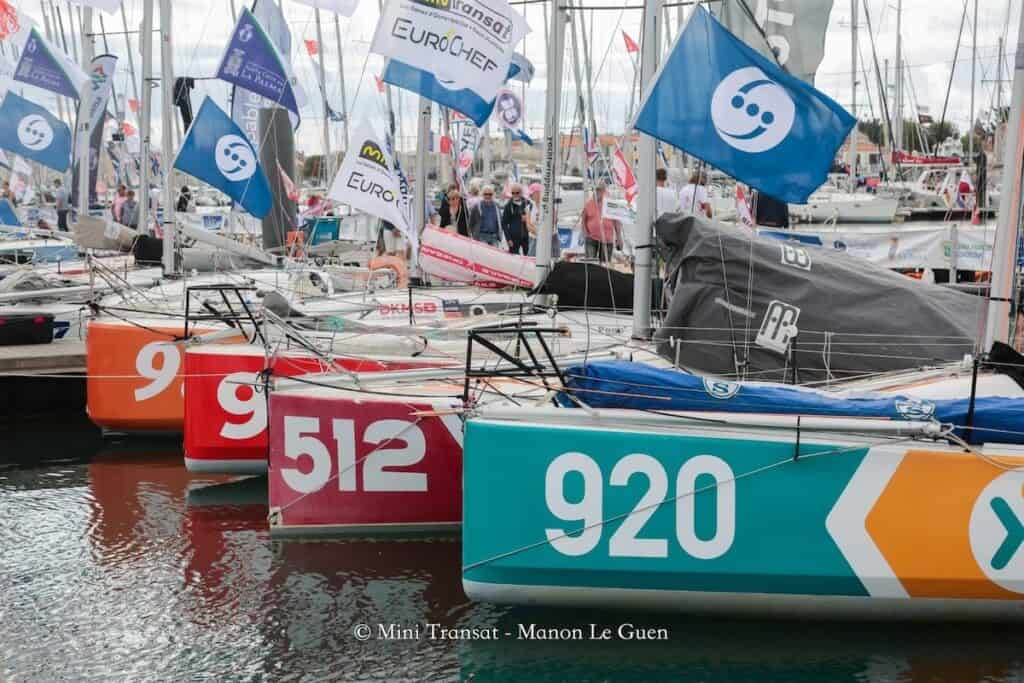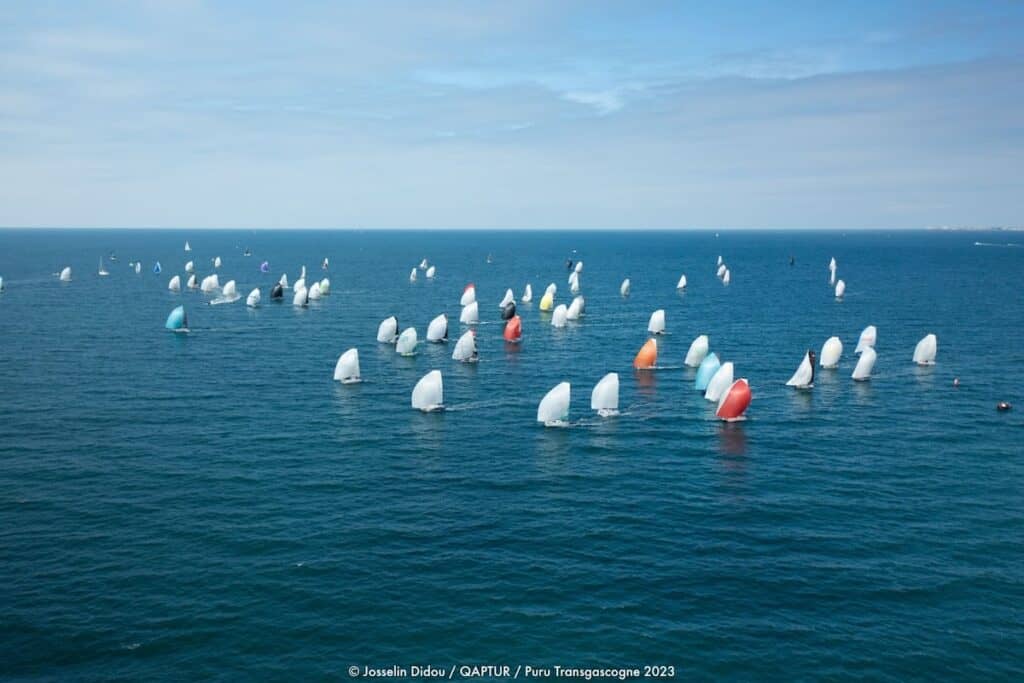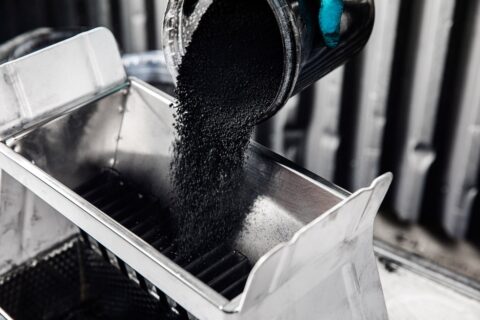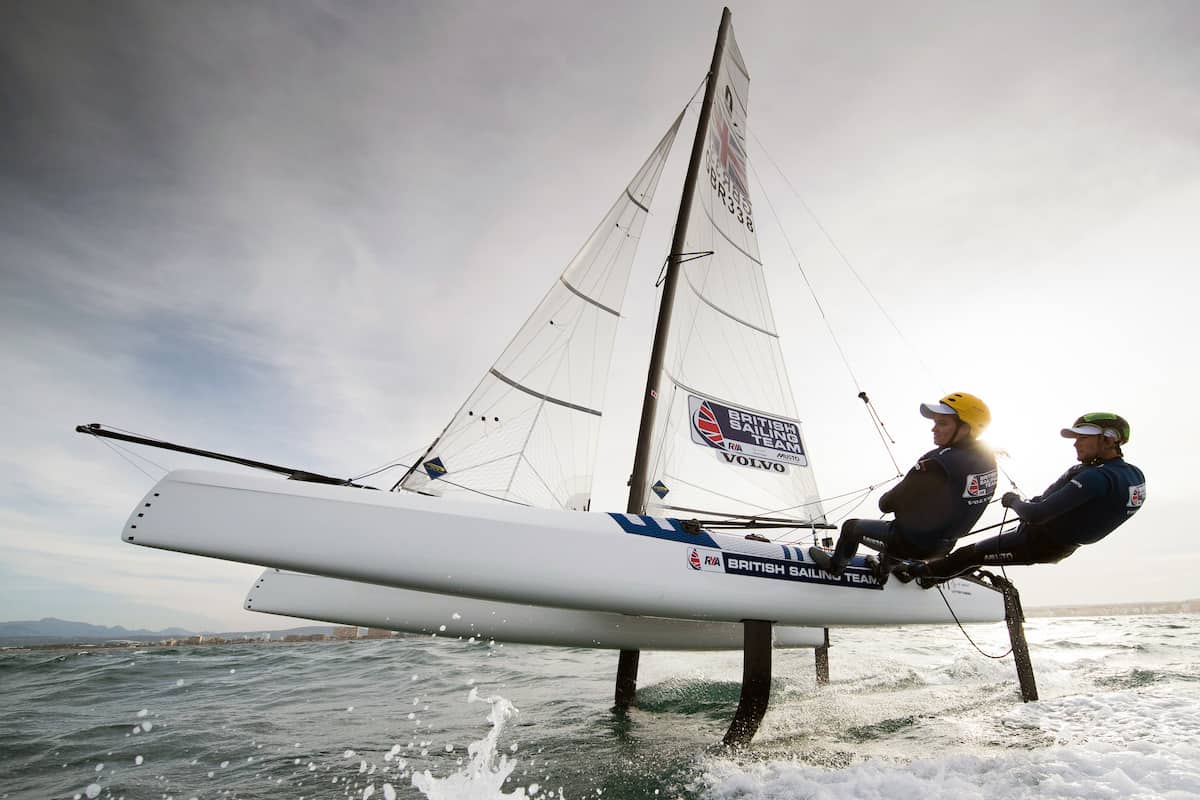
As part of a broad strategy to reduce its environmental impact, a world-renowned sailing competition has announced plans to make the popular series more accessible by organising a new solo race for older boats.
This inclusive new initiative boosts sustainability in a sport working collaboratively to grow its participant and audience numbers, whilst at the same time cutting carbon and supporting a more circular economy.
Carbon audit and emissions benchmark
Classe Mini has commissioned experts at public investment bank BPI France to undertake a carbon audit to examine the impact of the organisers, suppliers and races taking place over the season.
Transport, by car and plane, came out on top in terms of emissions accounting for over half (57%) of the total. Nearly 90% of this was attributed to race fans, the sailors and their families travelling to the 15-18 races held March-September in the Mediterranean and Atlantic.
Interestingly, the sustainability study also found that while the prototype class has higher emissions levels during boat construction, they have a longer lifecycle than the production boats, smoothing out their carbon footprint over time.
All this information is being used to create a benchmark for an emissions reduction strategy involving a collaboratively designed process with input from sailors.
Organisers are also developing a carbon calculator so sailors can determine their own footprint.
Understanding base points for emissions is key, says Classe Mini Board Member Mathieu Gobet:
“We adopted a strategic approach to reducing the class carbon emissions by at first undertaking an impact assessment so we had the figures to make informed decisions on which areas we should focus on and how to measure our work.“
It has also been important to adopt a collaborative and inclusive approach, adds Gobet, who sits on the sustainable development commission formed to oversee the process:
“We want to take all stakeholders with us on the journey — board members, sailors, sponsors and suppliers — and are encouraging feedback to keep them engaged. We are hosting a series of facilitated workshops to explore challenges and solutions so we can plan a direction of travel over the next decade.”
As part of the strategic review, a new race has been proposed for the 2024 calendar.
This aims to give sailors with older boats the opportunity to compete in an event that will help them qualify for the bi-annual Mini Transat race to the Caribbean, which recently set off from Les Sables d’Olonne.
Inclusivity and sustainability in a win-win

The competition programme, which attracts around 500 sailors in over 200 boats in the prototype and production classes, had been a victim of its success over the years with lengthy waiting lists for some races.
Strict rules only allow Mini Transat qualification for boats that have completed 1500nm of competitive sailing over the season. Unfortunately, this means some sailors, typically in boats built around 2000, who are unable to commit to some of the races, cannot take part.
In order to reduce the sporting inequalities between boats, therefore, board members are hoping to launch a 500nm solo race in August reserved exclusively for these older generation boats.
This will help them gain the necessary points to qualify for the Mini Transat and discourage them from having to resort to building new boats.
Acknowledging the sustainability win-win, Classe Mini Board Member Emilie Gobbesso concludes:
“It takes a huge commitment of time and money for amateur sailors to compete in the 6.50s and some don’t have either. We are an inclusive and accessible class and it is important to introduce opportunities for older boats to race and meet the criteria to compete in the Mini Transat.
“There is also a sustainability driver to this by offering a race platform for these boats to continue to sail rather than sailors having to resort to building new ones to stay competitive.”
Further Reading:
- More about Classe Mini; and bi-annual Mini Transat race ;
- More about the public investment bank BPI France;
- Also on SustMeme, Leisure and tourism must race to revive our oceans;
- Also on SustMeme, World Sailing challenge inspires new electric boat innovation;
- Also on SustMeme, Hydrofoils can help electric ferries fly across the sea;
- Also on SustMeme, Ocean X Prix: Extreme E comes to the coast of Senegal;
- Also on SustMeme, Seawater harvesting for island hotspot in Baltic Sea;
- Also on SustMeme, Round-the-world boat race to make waves in sustainability.
Check out full archive of stories on the SustMeme Transport & Mobility Channel, now available to sponsor.






